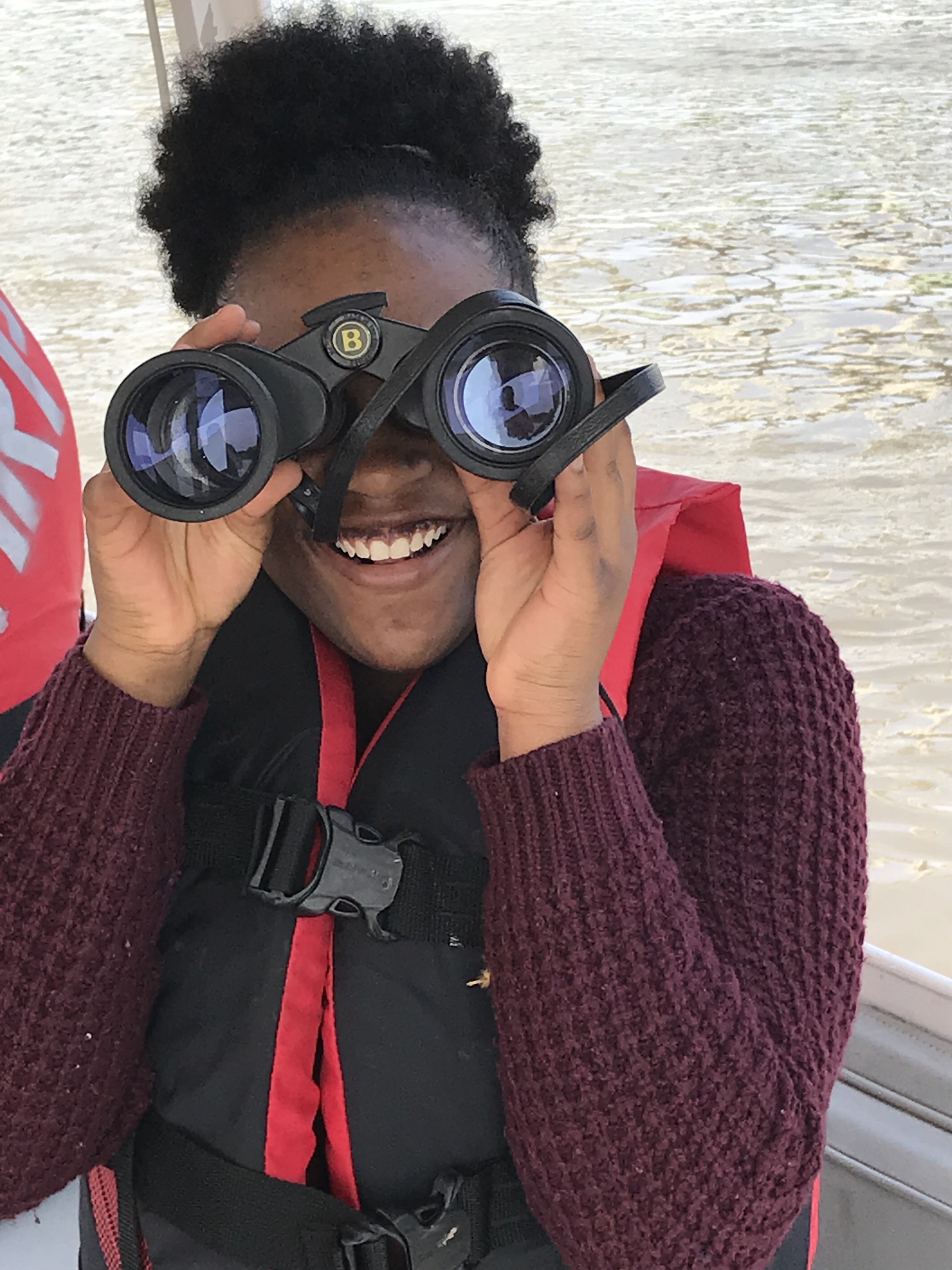
Green Works KC: Giving Back and Creating Jobs at Home
Green Works in Kansas City is the brainchild of Kate Corwin, former IT engineer who had an epiphany when her best friend died, deciding that she liked her job, but it wasn’t what she wanted to do with the rest of her life. What Corwin really wanted to do was create jobs in Kansas City, so she changed careers, starting a furniture manufacturing company, and giving internships to local high school students. Fast forward to 2007, and Corwin’s initiative becomes a bona fide nonprofit organization that provides not only internships, but environmental education to local youth, as well. This is the organization that Kars4Kids deems exceptionally worthy of becoming the recipient of one of our small grants.
It’s this: we love the idea of successful adults who step back and think what they can do for their own communities. If everyone followed in Kate Corwin’s path, think what an amazing world it would be! We spoke to Green Works in Kansas City President and Founder Kate Corwin and Program Manager Roberta Vogel-Leutung to find out the specifics of this terrific initiative:
Kars4Kids: Since 2007, you’ve worked with almost 400 students, and all of them have gone on to graduate high school! Do you keep tabs on students after high school? Any idea how many have gone on to college or found meaningful work?
Roberta Vogel-Leutung: We aren’t a large enough organization to formally keep track of the students, although many of them keep in contact with us informally. A number are in college and several work in environmental jobs including an early graduate who works at the KCMO Water Department, a connection from his Green Works summer internship, and another graduate is helping to maintain the city’s green infrastructure.
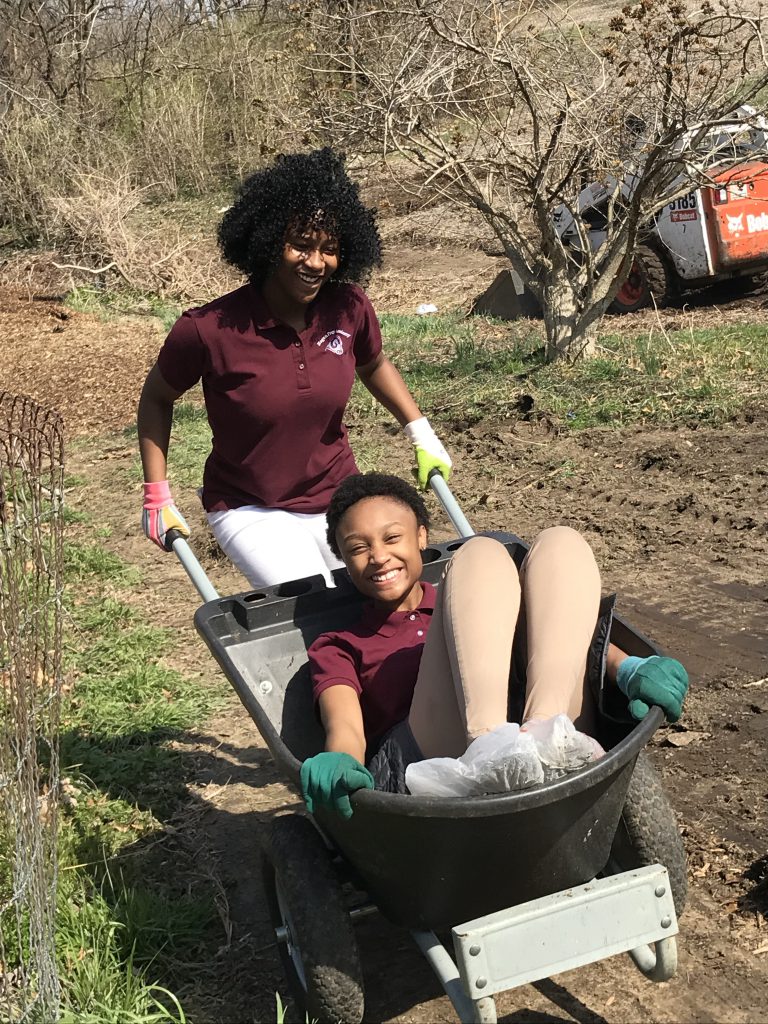
Kars4Kids: Are most of the internships and job training workshops for jobs with an emphasis on being eco-friendly? Do you try to connect the dots between Green Works in KC’s first year Environmental Ed program and the second year Workforce Development and Summer Internships programs?
Roberta Vogel-Leutung: Yes, the ideal Green Works in Kansas City student will progress through all of the programs sequentially so that they have a solid foundation in understanding environmental issues; appreciating being in nature; and hopefully, an awakened care for their surroundings. However, we accept new students in all phases of programming.
We do our best to place students according to their interests and our sustainability values, which can be expressed in any sector. Many of our students have interest in health fields, for example, which are very aligned with environment and sustainability.
Kate Corwin: Our students may not choose a field that we would consider “green.” The important thing is to impart the idea that we can incorporate sustainable values into all our careers.
Kars4Kids: Tell us about the Oxbow on Brush Creek habitat restoration project in which students planted native species and removed almost 2 acres of invasive honeysuckle. How was this program coordinated? Who educated the students on how to do these things?
Roberta Vogel-Leutung: The Oxbow Restoration project was conducted by a collaboration of adult environmental professionals and volunteers, in coordination with ECOS students and ECOS programming. The ECOS curriculum included units on watersheds, assessing water quality, planting with native plants for water quality, and the value of trees. The Oxbow Project provided the service learning opportunities for the students to put into practice what they learned.
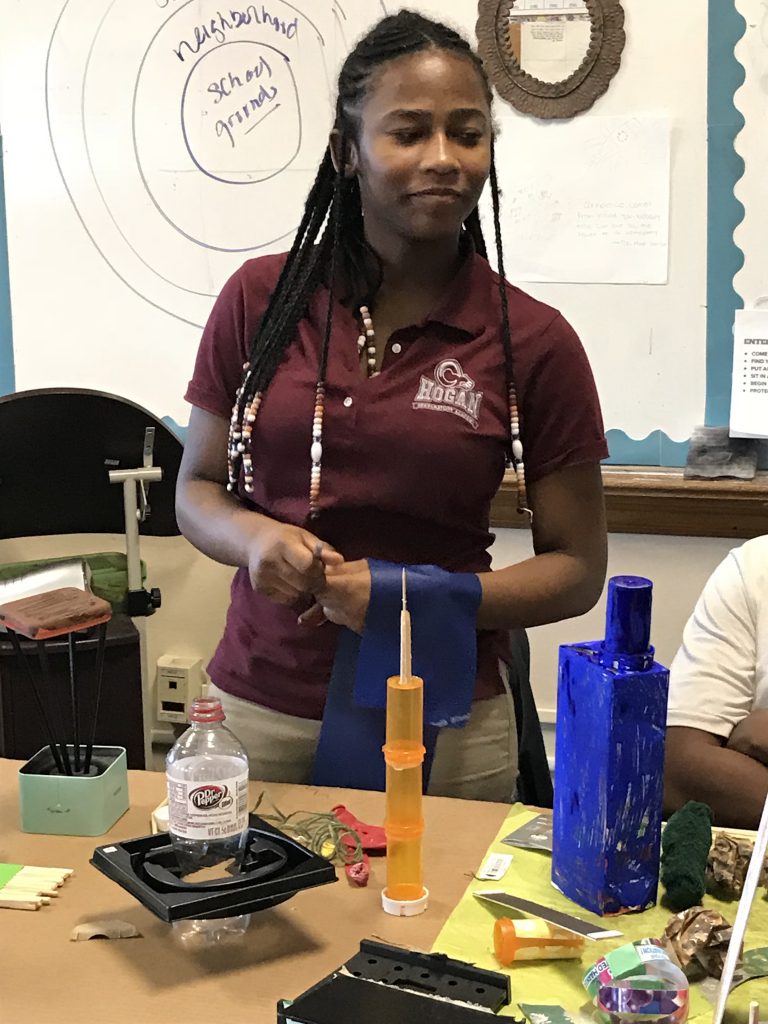
Kars4Kids: Is there a life lesson there regarding the honeysuckle removal on how something beautiful may have to be eradicated because it chokes off what is meant to be there? What did the students make of that?
Kate Corwin: What they learned is this: simple actions including introducing a non-native plant, can have serious consequences for generations to come.
Kars4Kids: Green Works in KC students worked with the KCMO Water Services and Parks & Recreation to write and assist in producing videos on things like tips for water conservation for use at community events. What are the benefits of using local students in creating PSAs on environmental causes?
Roberta Vogel-Leutung: The first benefit is to the students. When students act out, or embody their lessons for teaching others through PSAs, it solidifies their understanding of and commitment to what they are teaching. Solid waste issues, such as littering and illegal dumping, are common problems in the places the students live, and participate in service projects, so they are also the projects that most interest the students.
Kate Corwin: Plus, when students are actively involved in the creation of these videos, they will share them with their friends and family.
Kars4Kids: The Girls Lead program has students conducting green audits of local businesses. How did the businesses fair? Is there a follow-up? Do most businesses comply with the recommendations of the student audits?
Kate Corwin: The Girls Lead program was developed to align with a funder that was interested in supporting STEM programs for girls, which is why it was offered to young women. It was a program we ran for two summers, and may run again if we locate another funder. The students conducted audits with local energy professionals and we were really pleased to find at the end of the program that the businesses took most of the suggestions from the audit. The students really benefited from the opportunity to present their findings to the businesses.
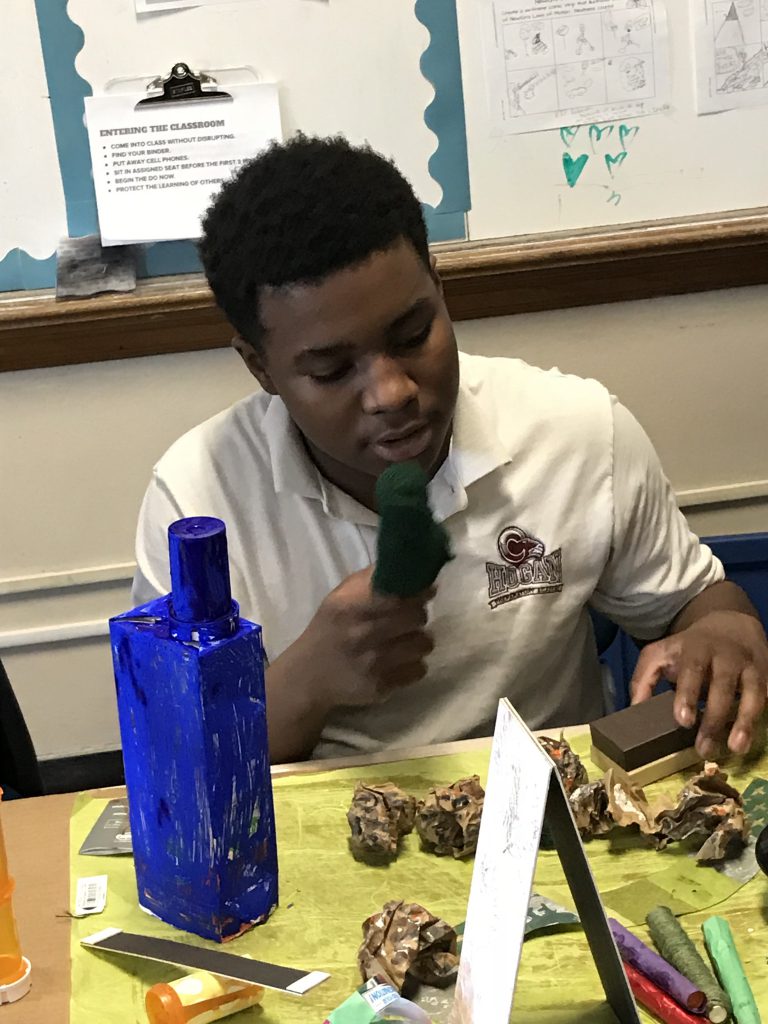
Kars4Kids: Tell us about some of the business plans that have come out of Startup Saturdays. Why is it beneficial for a student to come up with a business concept and create a business plan? Have any of these ideas been carried to fruition?
Kate Corwin: Students developed an herbal insect repellent and an outdoor container for used plastic bags to be used for dog waste. One student started a business buying shoes at thrift shops, repairing them and re-selling them on-line. It’s important for students to come up with a business concept and create a plan to remove the mystery from the process. With technology eliminating so many jobs in our society, we think it’s important for our students to learn that self-employment opportunities are numerous and doable and an option for them.
Kars4Kids: What kinds of skills do the students of Green Works in Kansas City learn in money management? How do you make these lessons tangible for students who come from low-income homes?
Roberta Vogel-Leutung: Financial literacy is a core group of skills that are essential for students to be successful in utilizing the rewards of their internships or other jobs, and saving and planning for future training, be it college or technical school. The students, who largely come from lower income homes, are very aware of the financial limitations of their conditions, and are eager to learn how to budget; how to bank; the wise use of credit; and how to make smart consumer choices that are in alignment with the visions they have for their futures.
Kate Corwin: We focus on topics relevant to the students right now: credit vs. debit cards; the dangers of predatory lenders; the true cost of owning a car; the true cost of living on your own; and budgeting.
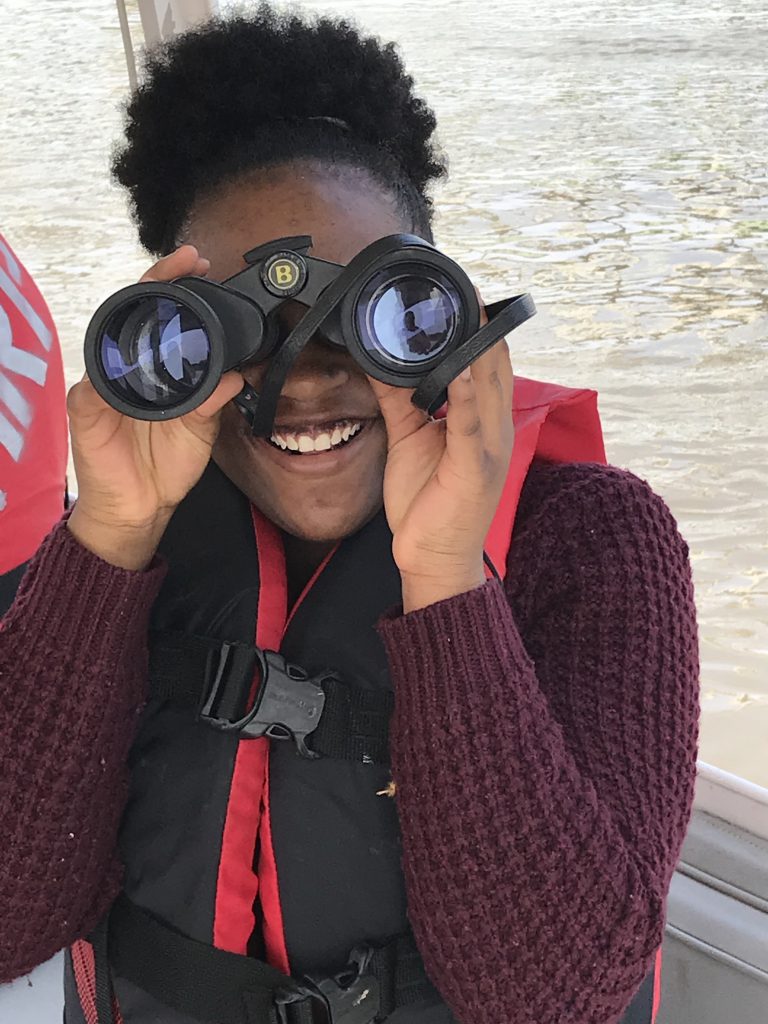
Kars4Kids: What’s next for Green Works in Kansas City?
Roberta Vogel-Leutung: We are moving our ECOS program from 9th and 10th grade to 7th and 8th grade, and will be forming a new program for 9th and 10th graders focused on monthly service projects where they can earn needed community service hours, and practice what they have learned in ECOS.